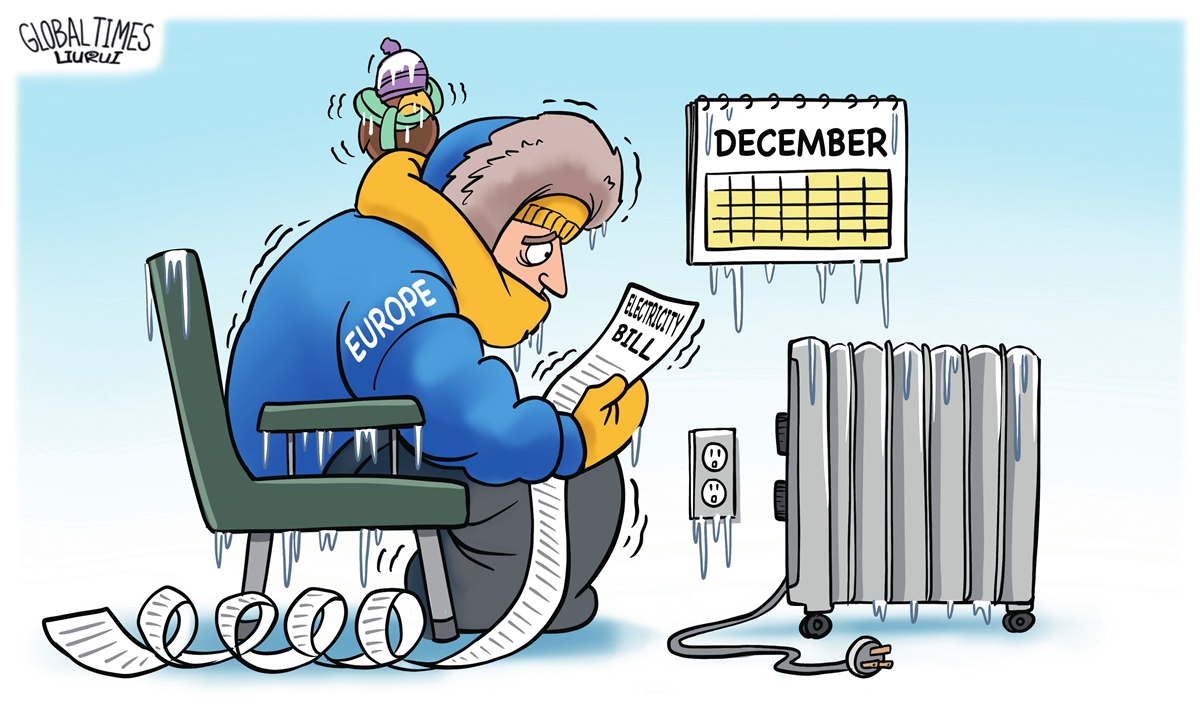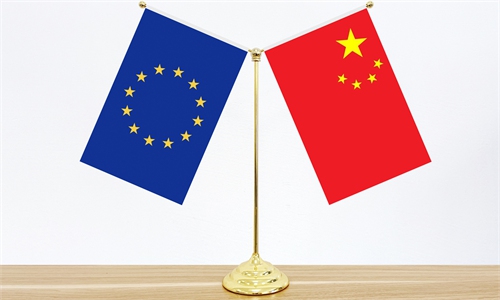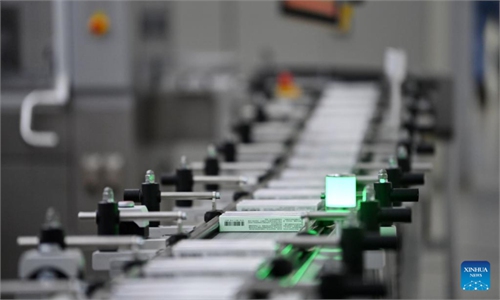
EU rising energy prices Illustration: Liu Rui/GT
Energy shortage in Europe intensified by the Nord Stream pipelines blast, which pushed gas prices to record levels, have sent many European companies scrambling to deal with the growing risks to production costs.
Companies in the region are heading to China to set up new plants and pursue investment opportunities, especially companies in auto-making and chemicals, which need stable power supplies, the Global Times learned.
From January to August, the actual use of foreign capital in China reached 892.74 billion yuan, up 16.4 percent year-on-year, statistics from the Ministry of Commerce showed.
The EU's overall investment in China rose by a significant 123.7 percent, reflecting European companies' confidence in the Chinese market.
For example, German chemicals giant BASF announced that its first plant in South China's Zhanjiang started operation in early September, marking the company's largest overseas investment project to date.
Recent moves by some European companies might not be a direct reflection of the energy crisis in Europe, as supply chain shift often takes years. But the trend shows that these companies are embracing the Chinese market in an effort to stabilize their supply chain, Bai Ming, deputy director of the International Market Research Institute at the Chinese Academy of International Trade and Economic Cooperation, told the Global Times on Wednesday.
The Nord Stream 1 and 2 explosions will have a great impact on energy supply in Europe, experts said. On the other hand, China is relatively less affected by international energy crunch and has advantages in ensuring stable energy supply.
A recent survey of more than 100 automakers and suppliers by the German Association of the Automotive Industry found that 22 percent wanted to relocate their investments abroad, according to local media reports. Only 3 percent of them intended to increase investment in Germany.
German auto-makers account for about one-third of EU's direct investment in China. That level was even higher in the first half of 2022, as German automaker BMW increased its stake in a Chinese joint venture from 50 percent to 75 percent, and other European automakers poured more money into new facilities to make electric vehicles in China.
Analysts predict that if the European energy crisis deepens, more companies will increase their investment in China.
Although China is the world's largest energy importer, China's energy supply is basically guaranteed, and cooperation between Chinese and European enterprises can ease the energy crisis and strengthen supply chain security, Wu Yikang, honorable chairman of the Shanghai Institute of European Studies, told the Global Times on Wednesday.
"Recent moves by European companies show that their confidence in investing in China is growing instead of waning, and there is no decoupling from China as reported by some Western media," Wu said.



